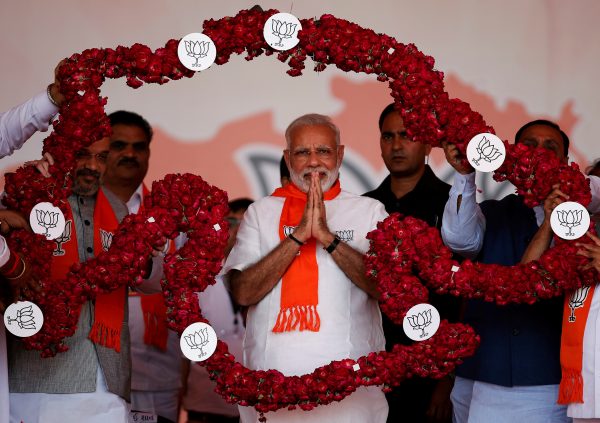Grounded in anti-elitism and anti-pluralism, populism calls for a radical break with the past and a disdain for any institution that attempts to mediate between the leader and their people, such as the media. Populism claims to speak for the ‘true people’. It nurtures victimhood among this constituency, claiming they are abused by a predatory elite.
These characteristics can have implications for the foreign policy of populists, none of which bode well for international cooperation. Populists’ disdain for intermediate institutions can undermine support for international bodies like the United Nations or regional organisations. This leads to systematic prioritisation of bilateralism over multilateralism — hardly the most effective pathway to solving global problems.
The claim to embody the will of the people can further limit populists’ willingness to contribute to global challenges, such as climate change. Decision-making processes in foreign policy become more centralised and personal, with fewer formal opportunities for alternative viewpoints.
The record of recent populist foreign policy appears to follow this model. Italy’s Deputy Prime Minister Matteo Salvini dwells on scapegoating European bureaucrats. Trump is set to tear down every recent US diplomatic accomplishment, from the Trans-Pacific Partnership to rapprochement with Cuba. Embracing a non-confrontational approach to China, President Rodrigo Duterte refrained from upholding a 2016 ruling at the Permanent Court of Arbitration in The Hague that affirmed the Philippines’ claims in the South China Sea. Anticipating a further breakdown of international cooperation, countries such as Germany, Canada and Japan herald an ‘alliance of multilateralists’.
Yet, rhetoric aside, in practice some populist leaders do not pursue radically different foreign policies when compared to their non-populist predecessors. And if they do adopt changes, they may be a reflection less of their character as populists than of the deeper trends underlying global politics in a post-Western, multipolar 21st century.
How populism impacts a country’s foreign policy also hinges on that country’s position in the international system. Where Trump can afford disruptive measures to please his domestic base, other states are in less of a position to do so. Similarly, scapegoating international institutions makes less sense in countries where the political immersion in and financial contribution to international institutions is less pronounced — arguably most countries in the Global South, including India.
Anyone acquainted with Indian foreign policy will be aware of its striking continuity over the decades. While Modi’s textbook populist domestic politics contrast with those of his non-populist predecessor Manmohan Singh, the Modi government’s actual foreign policy changes are modest.
Modi, if anything, has been more willing to contribute to global public good provision than Singh. He took a relatively constructive approach to the Paris Climate Accord, for instance. Neither is Modi substantially less inclined to engage in multilateralism than his predecessor.
Modi’s remarkably active diplomacy instead exhibits a trait shared by other populist governments across the Global South: a desire to diversify international partnerships. While Duterte turns to China, he quietly maintains the Philippines’ security alliance with the United States. Erdogan’s Turkey is turning its back to the West without questioning its decade-old NATO membership.
India’s investment in diaspora politics under Modi is a more direct result of his populist character. Speeches to the Indian diaspora are a central element of his foreign visits and the government is giving Indian embassies funds to cultivate ties with the diaspora. Such activities may help Modi to link an otherwise ‘elitist’ and detached foreign policy with the ‘true people’.
Another characteristic of Modi’s foreign policy is the centralisation of decision-making processes, often circumventing the traditionally dominant Ministry of External Affairs. As a result, Indian foreign policy is increasingly not the domain of professional diplomats — a trend shared by other populist governments.
The Modi government and its foreign policy apparatus also actively employ social media, reflecting a profound distrust of the established media. Diaspora politics and Twitter diplomacy have been particularly helpful for India in nurturing ties with the United States (home to India’s largest diaspora outside South Asia) and the evacuation of Indians trapped in Middle Eastern civil wars. By contrast, Erdogan’s aggressive cultivation of the Turkish diaspora in Europe and Trump’s foreign policy tweeting yield less-positive results.
What to make of all this? Modi’s India suggests that populism impacts not the substance but the style of foreign policymaking. Yet, in the long run, foreign policy style and procedures will also impact substance. Centralised decision-making creates bottlenecks, and the marginalisation of specialised foreign policy bureaucracies undermines both the effectiveness and continuity of foreign policy.
Modi’s foreign policy, like that of other populist governments across the Global South, exhibits some of the trends seen in world politics today. At the top of this list is the demise of Western hegemony in discursive, political and economic terms. Rather than changing course of foreign politics entirely, the global rise of populism is reinforcing existing trends, especially a tendency towards diversifying international partnerships.
Johannes Plagemann is a researcher at the GIGA German Institute of Global and Area Studies in Hamburg, Germany.
Sandra Destradi is Professor of International Relations and Regional Governance at the Helmut Schmidt University / University of the Federal Armed Forces Hamburg and a researcher at the GIGA.

